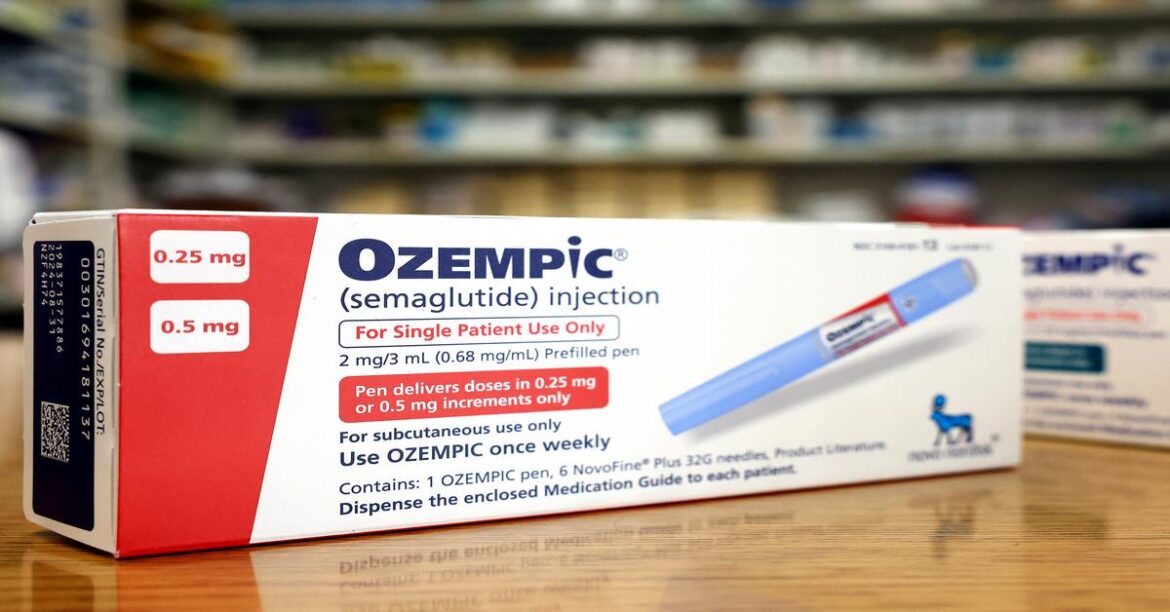Berberine Vs Ozempic: Is Berberine Really Nature’s Ozempic?
In recent years, many individuals have looked beyond pharmaceutical medications for managing conditions like type 2 diabetes and weight management. One natural compound that has garnered significant attention is berberine. This blog post aims to compare berberine and the FDA-approved medication Ozempic (semaglutide), exploring whether berberine can be considered a natural alternative to Ozempic.
Background on Ozempic
Ozempic is an injectable medication approved by the FDA for the treatment of type 2 diabetes, with the active ingredient being semaglutide. It acts as a GLP-1 receptor agonist, which means it mimics a hormone that regulates blood sugar levels. Ozempic works by stimulating insulin secretion when blood sugar levels are high, slowing gastric emptying, and reducing appetite, making it effective for weight loss and glycemic control.
Introduction to Berberine
Berberine is a natural compound found in plants like barberry and goldenseal. Traditionally used in herbal medicine, it is known for its variety of health benefits, particularly in managing blood sugar levels and improving metabolic health.
Mechanism of Action: How They Work
Ozempic functions by:
- Enhancing insulin sensitivity, leading to reduced blood sugar levels.
- Decreasing appetite through its effects on the brain.
- Slowing gastric emptying, which helps regulate post-meal blood sugar spikes.
On the other hand, berberine is known to activate AMP-activated protein kinase (AMPK), a crucial regulatory enzyme in metabolism. This action can help lower blood glucose levels and improve insulin sensitivity, akin to the effects of traditional diabetes medications.
Clinical Evidence and Research Studies
Research on Ozempic has shown that patients lose an average of 15% of their body weight while experiencing significant reductions in HbA1c, a marker of blood sugar control. A study demonstrated that semaglutide led to substantial improvements in both weight management and glycemic control within an 68-week period. (1)
Regarding berberine, studies suggest it can lower blood sugar levels similarly to metformin, with some trials indicating an HbA1c reduction of 0.5% to 1.5% when used over a few months. However, more extensive clinical trials directly comparing berberine to conventional treatments for diabetes are still needed.(5)(6)
Benefits of Berberine
In addition to its blood sugar-regulating properties, berberine has been linked with several other health benefits:
- Supporting gut health by promoting beneficial gut bacteria.
- Helping to manage cholesterol levels and reduce inflammation.
- Contributing to weight management by enhancing metabolic function.
These benefits extend berberine’s reputation as a potential natural alternative to Ozempic, particularly for those interested in holistic health solutions.

Side Effects and Safety Profile
Common side effects of Ozempic include gastrointestinal issues such as nausea, vomiting, and diarrhea. While severe side effects are rare, they can occur and should be discussed with a healthcare provider.(4)
Berberine is generally considered safe, but individual experiences may vary. Mild side effects may include stomach upset, constipation, or diarrhea, depending on the dosage. It’s always important to consult a healthcare professional if you plan to combine it with other medications or treatments.(6)
Who Should Consider Each Option?
Ozempic is usually prescribed for individuals with type 2 diabetes and who need medically supervised weight loss support. On the other hand, berberine could be suitable for those looking for holistic approaches to manage blood sugar or for general wellness without the need for a prescription.
Conclusion
While both Ozempic and berberine offer promise in managing blood sugar and assisting with weight loss, they serve different purposes. Berberine shows potential as a natural alternative but lacks the extensive clinical evidence that supports Ozempic’s robust efficacy in diabetes treatment. For those exploring options, it’s critical to consult healthcare professionals to determine the best approach tailored to individual health needs.
Have you used either Ozempic or berberine? I invite you to share your experiences in the comments below, and if you found this comparison helpful, consider sharing it with others interested in natural health alternatives!
References
- 1. Drugs.com. Ozempic Overview.
- 2. FDA. Ozempic (Semaglutide) Label.
- 3. Fay Nutrition. Berberine Vs Ozempic.
- 4. Healthline. Can Berberine Help You Lose Weight?
- 5. Sharp Health News. Is Berberine Nature’s Ozempic?
- 6. Verywell Health. Exploring Berberine’s Effects.
- 7. Nutrisense. Berberine Vs Ozempic for Weight Loss.
- 8. MedPage Today. Comparing Berberine and Ozempic.


